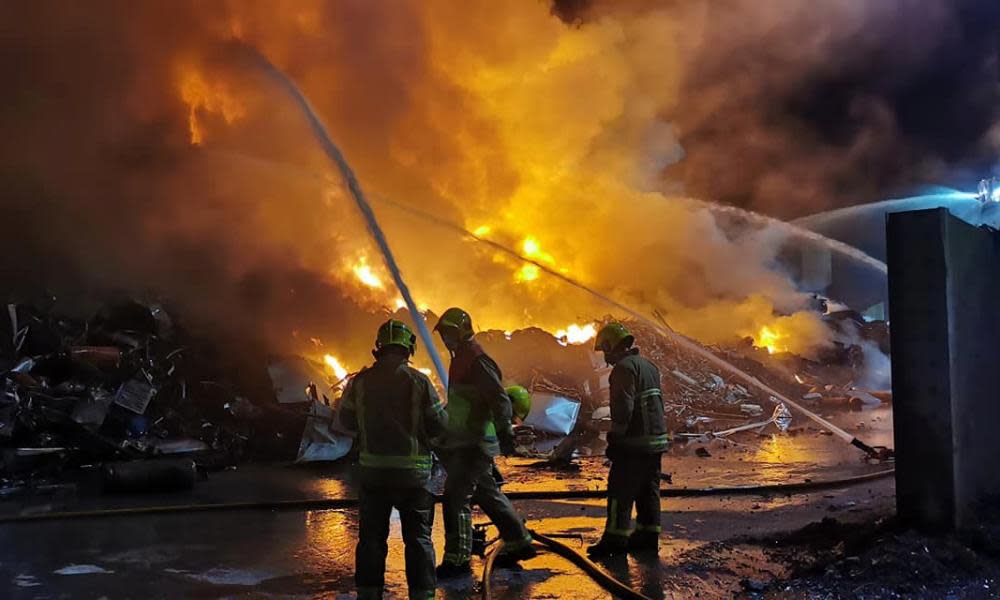Troops may be called into Northern Ireland if firefighters strike

Hundreds of troops could return to Northern Ireland as cover for striking firefighters, the Guardian can disclose.
The head of the region’s fire service has said the army will be formally requested to provide cover unless unions agree to do so for “high risk calls”. The Fire Brigades Union (FBU) has refused to do so without an increased pay offer.
Any request for troops would raise serious security concerns and could be politically explosive. Dissident republicans have in the past warned they would target any British troops who returned to the “island of Ireland”.
The outcome of the FBU’s ballot of more than 33,000 members, who have been asked whether to take industrial action after rejecting the offer of a 5% pay rise, is due on Monday.
The Northern Ireland Fire and Rescue Service (NIFRS) is one of many fire services expecting a vote in favour of strikes starting as early as 23 February.
Civil servants raised the possibility of seeking cover from the armed forces in December and January as they discussed how to respond to an expected ballot in favour of a strike in the region.
Discussions have involved staff from the NIFRS and Northern Ireland’s Department of Health which covers the emergency services.
The union has been asked by the local fire service to give emergency cover, but is minded not to do so. Each region can negotiate a separate settlement with the union. It is understood that the regional union has not received an increased pay offer.
Andy Hearn, the NIFRS’s interim chief fire and rescue officer, said he may be forced to call the Ministry of Defence and ask for troops.
“Discussions continue with the Fire Brigades Union to reach clarity about the special arrangements they are prepared to agree for NIFRS which would enable firefighters to respond to certain categories of high-risk calls should a strike go ahead.
“Should agreement not be reached with the Fire Brigades Union, the need to request military aid to civil authorities from the Ministry of Defence will be progressed,” he said.
Civil servants are concerned there are not enough managers, trained temporary staff and non-unionised firefighters to provide cover for emergencies.
Government sources said “several hundred” extra staff would be needed to ensure an adequate service could be provided during a strike.
When asked if troops would be called in, a spokesperson for Northern Ireland’s health department said “all options are open”.
They said the department had been liaising with the NIFRS on contingency options. “The department has not requested back-up from the Ministry of Defence, however all options remain under consideration.”
Matt Wrack, the general secretary of the FBU, said the union remained open to talking to the authorities in Northern Ireland, including the NIFRS.
“We are confident we will win the ballots. We will have to receive a better offer than we have so far,” he said.
“We registered our pay claim in May 2022. It’s outrageous that, eight months on, we still do not have an acceptable offer from our employers … The answer is for fire service employers to urgently make a new offer to significantly increase the pay of all firefighters across the country.”
British troops left Northern Ireland in 2007, following approximately 3,600 killings during the Troubles. Since then, members of the armed forces have returned in low-key roles and army medics worked in clinics in Northern Ireland during the Covid-19 pandemic.
Troops helped to provide cover for firefighters in the country during a strike in 2002. Soldiers drove fire engines and were given police escorts and protection when called out to jobs.
About 1,200 army personnel have been drafted in to help during previous public sector strikes, including during industrial action by Border Force and ambulance staff in the lead up to Christmas.

 Yahoo News
Yahoo News 
